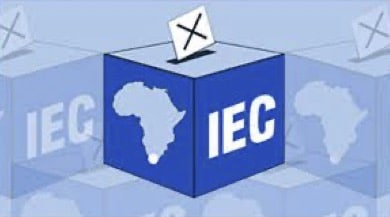Former Deputy Chief Justice Dikgang Moseneke has been chosen by the Independent Electoral Commission (IEC) to head up an inquiry to assess whether or not free and fair elections are possible this year, given the limitations brought about by Covid-19.
This question should not even be entertained. Delaying the local government elections scheduled for October would set a dangerous precedent.
After much speculation that the poll might be postponed, President Cyril Ramaphosa recently announced that local government elections would go ahead on 27 October. The Economic Freedom Fighters (EFF) were among those who were most vocal in seeking a postponement. And if one looks at the performance of the EFF in by-elections held during the Covid-19 pandemic it is not surprising that the party would like the date of the elections to be pushed back.
However, given the weekly scandals involving the African National Congress (ANC) – most recently with the party’s own secretary-general and president having a go at each other – it is to be expected that the ruling party would also feel inclined to favour the postponement of local government elections. This would give both the EFF and ANC time to boost their respective images and regain the confidence of their constituencies. There are three reasons why a postponement must be strenuously resisted.
First, according to IEC chairperson Glen Mashinini, the IEC has been able to hold 150 by-elections since Covid-19 first affected the country in March last year. Mashinini also stated that these by-elections were conducted without any hiccups or safety concerns arising from the pandemic.
Said Mashinini: ‘Preparations to host the local government elections are at an advanced stage and the commission is satisfied that it is possible to conduct successful elections within the current circumstances.’
‘Adequate safeguards’
He said: ‘The commission is also confident that the special Covid-19 protocols and measures to be put in place for the elections will provide adequate safeguards. These measures have been tested in more than 150 by-elections conducted over the past six months.’
This means that the IEC itself feels confident in its ability to conduct the local government elections in a safe manner, without putting anyone at risk.
Second, postponing the elections on this one occasion for safety concerns and to ensure ‘free and fair’ elections would set a dangerous precedent that would, de facto, allow the ruling party of the day – whose government appoints the IEC – to postpone an election whenever there are similar concerns in the future.
Once we go down that path there is no turning back. South Africa is one of the last democracies in Africa that holds regular elections without any obstacles. If we deferred this year’s election, we would create an obstacle for ourselves where in reality there is none. This would give the government the power to decide to postpone an election when it is to its advantage to do so –and it is currently to the advantage of the ANC.
This brings us to the third reason we cannot postpone the elections: history shows that countries that sacrifice their freedoms in order to gain more safety end up with neither.
Just recently the Cable News Network (CNN) reported that many European leaders dented democratic norms due to the Covid-19 pandemic and increased their own powers. But many of these governments have no plans to return to normal and give back the powers they have taken. These countries who allowed their governments to increase their powers have lost many of their freedoms, and the loss of freedoms did not always mean that there was an increase in safety or a reduction in Covid-19 infections.
South Africa has been subject to one of the world’s strictest lockdowns during the worse phase of the pandemic, yet we are not necessarily in a better position compared to countries that had more lenient lockdowns.
Spotted an opportunity
After announcing that elections will take place this year, the government has spotted an opportunity to give itself some time to improve its electoral prospects by pushing back the date for the poll.
This stratagem has been obscured by the veneer of concern about safety, and free and fair elections – and the appointment of a respected former Constitutional Court judge has no doubt added to this veneer. But at the heart of this sudden backtrack is a political calculation.
Given all the revelations of the corrupt behaviour of the national government, it would be wise for us to err on the side of great caution when it suggests that we postpone our only real means of holding it to account.
The views of the writer are not necessarily the views of the Daily Friend or the IRR
If you like what you have just read, support the Daily Friend

